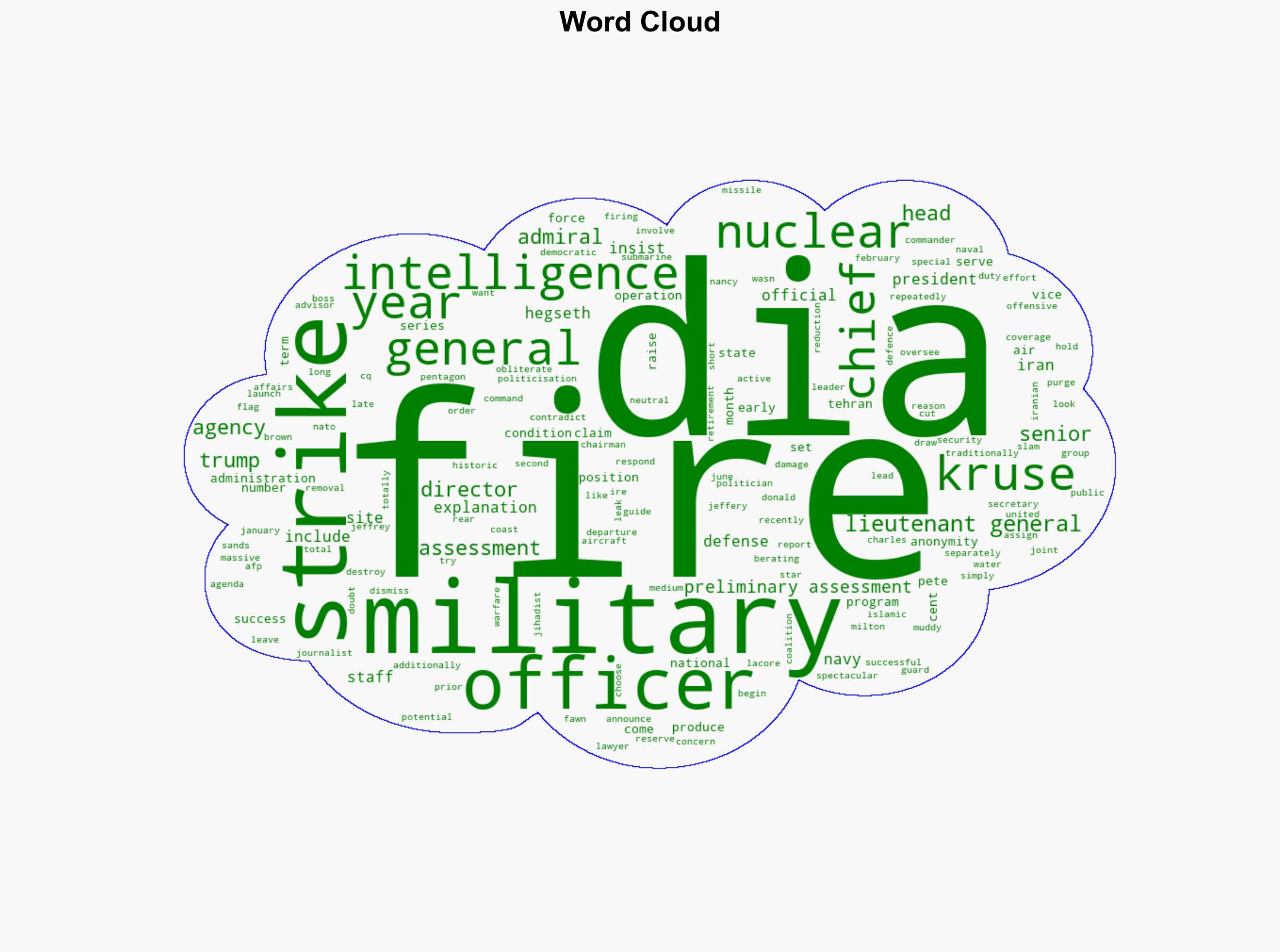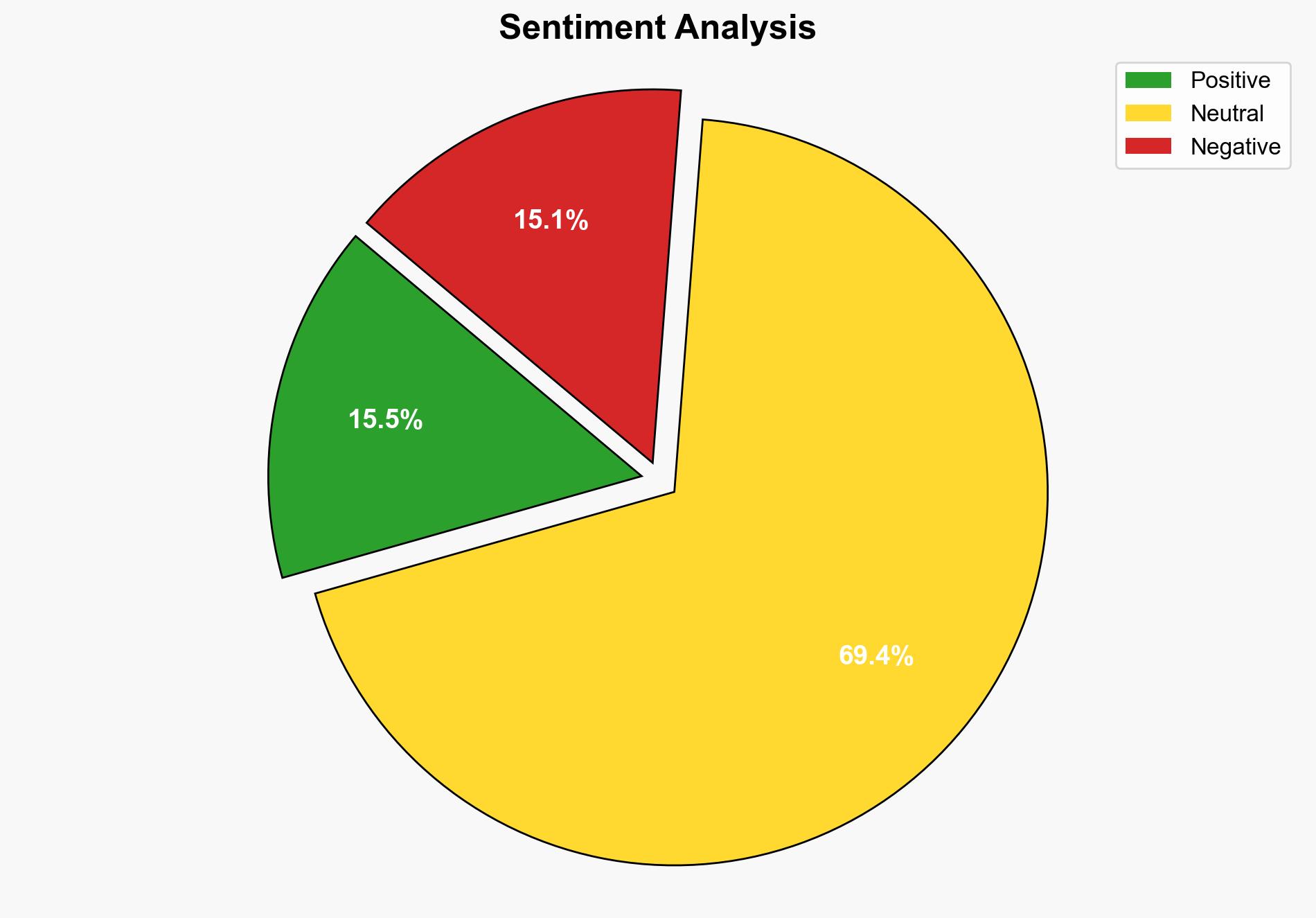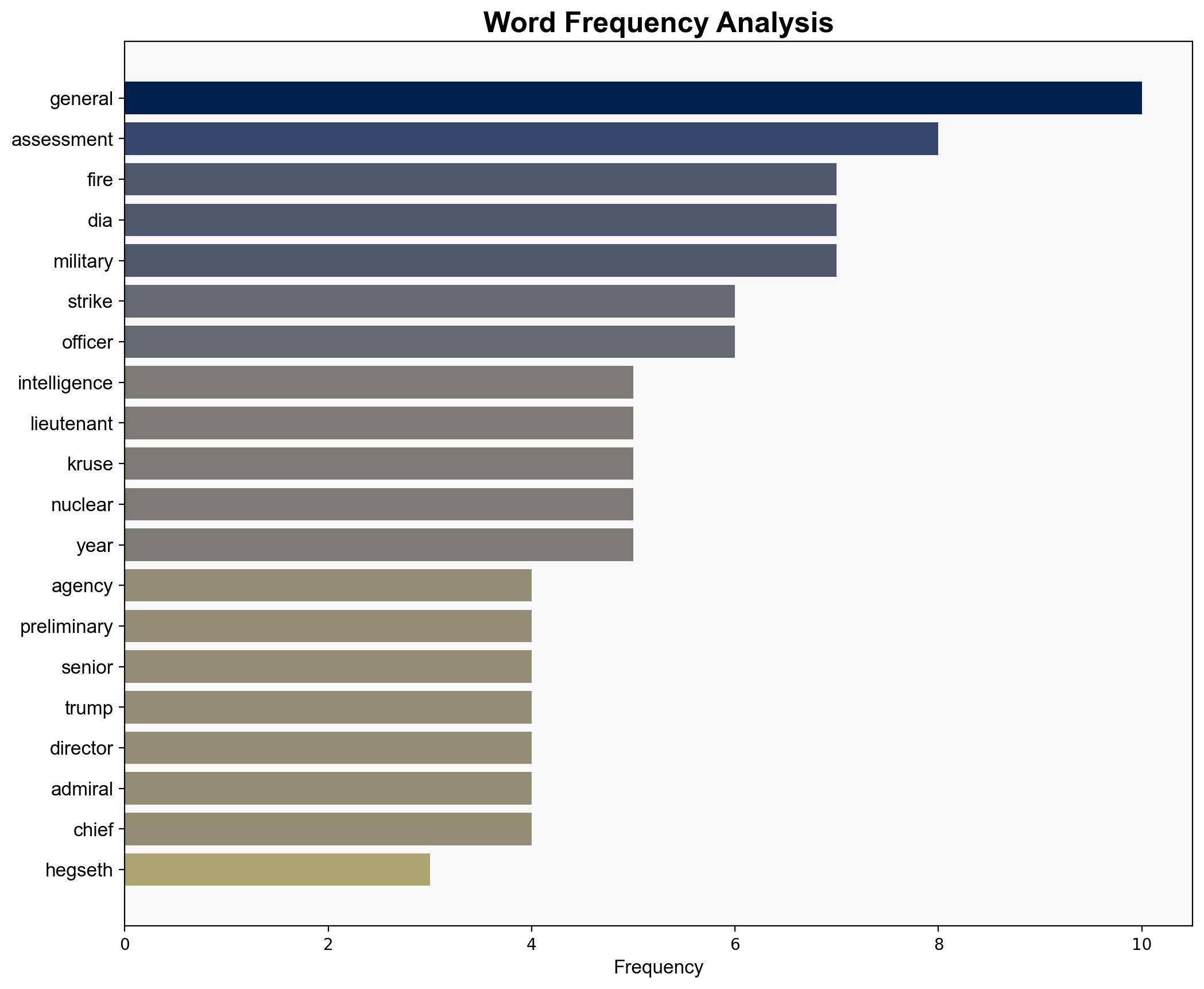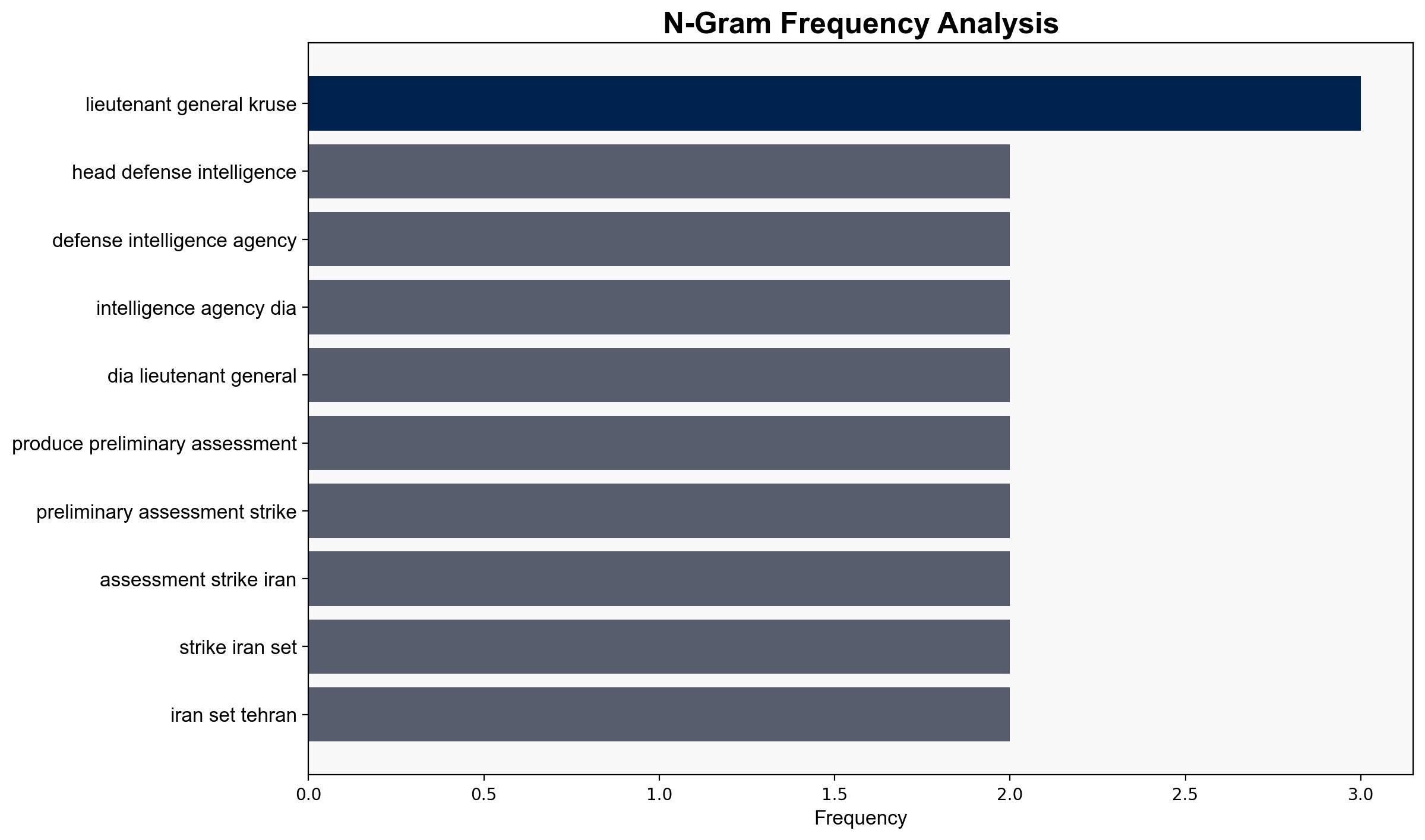Hegseth fires intelligence boss after Trump angered by Iran strike damage report – ABC News (AU)
Published on: 2025-08-24
Intelligence Report: Hegseth fires intelligence boss after Trump angered by Iran strike damage report – ABC News (AU)
1. BLUF (Bottom Line Up Front)
The most supported hypothesis is that the firing of Lieutenant General Jeffrey Kruse was politically motivated, aimed at aligning military assessments with the administration’s narrative. Confidence level: Moderate. Recommended action: Monitor further military leadership changes and assess impacts on intelligence integrity.
2. Competing Hypotheses
Hypothesis 1: The firing of Lieutenant General Jeffrey Kruse was due to a political agenda to suppress intelligence assessments that contradict the administration’s narrative on the Iran strike’s success.
Hypothesis 2: The firing was part of a broader military leadership restructuring, unrelated to the specific intelligence assessment on the Iran strike.
Using ACH 2.0, Hypothesis 1 is better supported due to the timing of the firing following the contradictory assessment and the pattern of dismissals of other senior military officers who may not align with the administration’s views.
3. Key Assumptions and Red Flags
Assumptions:
– The administration prioritizes narrative control over intelligence accuracy.
– The intelligence community’s assessments are unbiased and based on factual data.
Red Flags:
– Lack of transparency in the reasons for the firing.
– Consistent pattern of dismissals of senior military officials.
– Potential politicization of military leadership.
4. Implications and Strategic Risks
The potential politicization of military leadership could undermine the credibility of U.S. intelligence assessments, leading to strategic miscalculations. This could escalate tensions with Iran and affect alliances if allies perceive U.S. intelligence as unreliable. Additionally, internal morale within the military and intelligence agencies may suffer, impacting operational effectiveness.
5. Recommendations and Outlook
- Conduct an independent review of the intelligence assessments related to the Iran strike to ensure accuracy and transparency.
- Establish clear guidelines to prevent political interference in military and intelligence operations.
- Scenario-based projections:
- Best Case: Reaffirmation of intelligence integrity leads to restored trust and improved international cooperation.
- Worst Case: Continued politicization results in strategic errors and escalated conflicts.
- Most Likely: Incremental adjustments in military leadership with ongoing scrutiny of intelligence outputs.
6. Key Individuals and Entities
– Jeffrey Kruse
– Pete Hegseth
– Donald Trump
– Nancy Lacore
– Milton Sands
7. Thematic Tags
national security threats, military leadership, intelligence integrity, political influence





